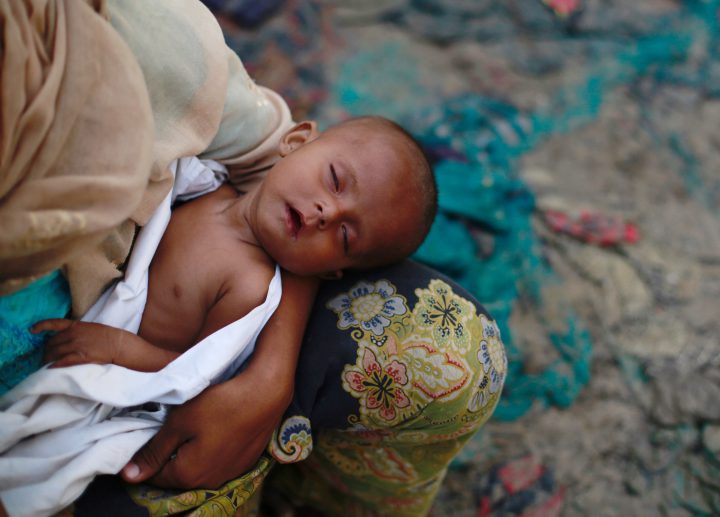Often described by experts as the world’s most persecuted people, Rohingya Muslims in Myanmar are once again subject to being pushed out of the country they have lived in for centuries, fleeing horrific acts of violence carried out by the military.

Rohingya Muslims are an ethnic and religious minority, not recognized to be citizens of Myanmar. They are, in essence, stateless.
In 1982, a law was passed in Myanmar banning the Rohingya from voting or holding public office. The Rohingya are also subject to a two-child limit, a limit that is not imposed on the rest of the people in Myanmar, and are required to receive government permission for the right to marry.
If you think that’s not only morally reprehensible but also in violation of international law, you would be correct.
But international conventions haven’t helped the Rohingya from violence and oppression in the past and it’s certainly not going to help them now as the military carries out what the United Nations high commissioner for human rights has labelled as “textbook example of ethnic cleansing.”
Other experts are even warning of a possible genocide, and yet the world barely seems to care.
I get it, we all have a lot going on, and when it seems like we’re inundated with a barrage of negative news stories it can be easy to tune out the especially horrific news. And by especially horrific, I mean the literal worst types of acts being carried out by a military regime against an already persecuted and marginalized population who have no rights.
How bad can it be you ask? Think about the worst kinds of things that humans have been known to do, and then multiply it by a few orders of magnitude.

Get breaking National news
New York Times reporter Jeffrey Gettleman is on the ground in a refugee camp in Bangladesh, and opened his most recent piece by recounting the story of a Rohingya refugee named Rajuma:
A pack of soldiers stepped toward a petite young woman with light brown eyes and delicate cheekbones. Her name was Rajuma, and she was standing chest-high in the water, clutching her baby son, while her village in Myanmar burned down behind her.
“You,” the soldiers said, pointing at her.
She froze.
“You!”
She squeezed her baby tighter.
In the next violent blur of moments, the soldiers clubbed Rajuma in the face, tore her screaming child out of her arms and hurled him into a fire. She was then dragged into a house and gang-raped.
By the time the day was over, she was running through a field naked and covered in blood. Alone, she had lost her son, her mother, her two sisters and her younger brother, all wiped out in front of her eyes, she says.
WATCH BELOW:
There are hundreds of thousands of women like Rajuma who have escaped indescribable horrors and the world simply either isn’t listening to their plight or does not care enough to do anything about it.
We often tell ourselves that “never again” will we allow genocide to unfold before our eyes. But how many times can we say that without it losing its meaning? Perhaps we should change the adage to “never again…unless we don’t actually feel like doing anything about it, in which case this will certainly continue to happen again and again.”
I admit it’s not exactly the kind of thing you want to slap on a bumper sticker, but at least then it would reflect the reality of our indifference.
I know that Prime Minister Justin Trudeau has written a strongly worded letter to Myanmar’s State Counsellor Aung San Suu Kyi, and that Minister of Foreign Affairs Chrystia Freeland has released statements condemning the violence as well, but we’re past the tersely toned assertion stage, and we’ve been past it for quite some time.
I’m not politically naïve enough to think that Canada can go at something like this alone, but I do know that Canada can lead by example, encouraging other nations to do their part as well.
Until we do, we’re failing women like Rajuma every single day.
Supriya Dwivedi is host of The Morning Show on Toronto’s Talk Radio AM640 and a columnist for Global News.













Comments
Want to discuss? Please read our Commenting Policy first.